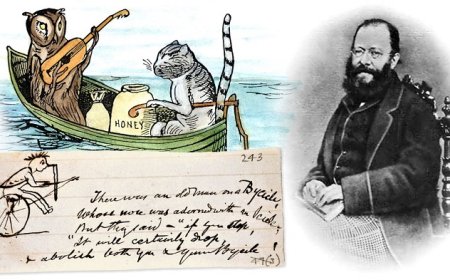10 Psalms About Praising Others
The Book of Psalms is one of the most beloved portions of Scripture, filled with songs, prayers, and declarations of worship. Often, Psalms are associated with praising God—and rightly so.

The Book ofPsalms?is one of the most beloved portions of Scripture, filled with songs, prayers, and declarations of worship. Often, Psalms are associated with praising Godand rightly so. The psalmists exalt the name of the Lord in every season of life, in both lament and celebration. However, an often-overlooked aspect of the Psalms is the way they model the practice ofpraising others.
In our modern world, where affirmation can feel rare and criticism is easy to offer, the biblical model of giving honor where honor is due stands out. The Psalms are not only theological poetry; they are also deeply relational. They show us how people related to God and to each other. Amidst the songs of worship and cries for help, the Psalms also include moments where individuals, communities, and even entire nations arepraisedfor their faith, integrity, or role in God's redemptive work.
This article exploresten Psalmsthat reflect the beauty and importance ofpraising others. Whether it is the recognition of a faithful servant, the affirmation of a righteous person, or the celebration of a godly king, these Psalms invite us to look at the people around us and speak words of honor.
Let us now look deeply into these ten Psalms, understanding how each passage sheds light on the biblical call tohonor others with our words.
Psalm 1: Praising the Righteous
Psalm 1 sets the tone for the entire Psalter. It contrasts the way of the righteous and the wicked. While its focus is on the path of life, it alsopraises the righteous man. He is described as one who delights in the law of the Lord and meditates on it day and night. He is like a tree planted by streams of water, bearing fruit in season.
Though God is the source of his strength, the Psalm commends the person for his devotion. This Psalm teaches us that it is fitting topraise someonewho builds their life upon the Word of God. Commendation is not flattery; it is the acknowledgment of virtue.
Psalm 15: Praising Integrity
Psalm 15 is a short but powerful Psalm that asks, "Lord, who may dwell in your sacred tent?" The answer is a list of characteristics that describe a person of integrity. This individual speaks the truth, keeps promises, and honors those who fear the Lord.
This Psalm doesn't merely describe behavioritcelebrates moral character. It lifts up the image of a person worthy of Gods presence, indirectlypraising thosewho live in such a way. The Psalm sets this person as a model for others, drawing attention to righteousness in human form.
Psalm 18: Praising the Faithful Warrior
In Psalm 18, David sings a song of thanksgiving after being delivered from his enemies. He gives full glory to God, but he also recounts his own role. He speaks of how he "kept the ways of the Lord" and did not turn from God's statutes.
Here, we see a combination of divine strength andhuman obedience. Davids words reflect a moment of personal affirmation. It reminds us that recognizing someones perseverance, faithfulness, and endurance is consistent with biblical praise.
Psalm 24: Celebrating the Generation Who Seeks God
Psalm 24 celebrates the King of Glory but also honors a specific group of people"those who seek Him." It identifies a generation that seeks the face of God and lifts them up as blessed.
This Psalm shows thatpraising others collectivelyis deeply biblical. Whole communities can be commended for their pursuit of holiness. In doing so, the Psalm inspires others to join that pursuit.
Psalm 37: Praising the Humble and Peaceful
Psalm 37 offers wisdom for living in a world filled with injustice. Among its teachings, it lifts up themeek and the righteousas worthy of admiration. They will inherit the land, it says, and their ways are known to the Lord.
Here we find praise given to those who trust quietly, do good, and live in peace. They are not flashy or boastful, yet the Psalm elevates them as examples. This reinforces the idea thatcharacter matters, and those who display humility should be honored.
Psalm 45: Praising the Royal Couple
Psalm 45 is a royal wedding song, rich in poetic beauty. It praises the king for his grace, justice, and strength. It also praises the bride for her beauty, dignity, and preparation.
This is a rare and vivid example ofpersonal praisein the Psalms. The psalmist celebrates real people, giving detailed compliments. This Psalm teaches us that it is good to praise others for their roles and gifts, especially in the context of covenant and calling.
Psalm 78: Honoring the Legacy of the Faithful
Psalm 78 recounts Israels history and praises those who remained faithful. Though much of the Psalm warns against rebellion, it highlights the tribe of Judah and the leadership of David as commendable.
The Psalm honors David for leading with integrity of heart and skillful hands. It reminds us thatpraise is also historical. Remembering and honoring past leaders is a way of testifying to Gods work through them.
Psalm 82: Calling for Righteous Judgment
Psalm 82 addresses unjust judges but also offers a standard for what good judgment looks like. The Psalm speaks favorably of those who "defend the weak and the fatherless" and "maintain the rights of the poor and oppressed."
Though mostly a rebuke, the positive qualities listed are implicitlypraiseworthy. They elevate the type of leadership God desires. By highlighting these actions, the Psalm shows how recognizing justice and mercy in others aligns with Gods heart.
Psalm 101: The Kings Commitments to Praise
Psalm 101 is a declaration of integrity from a king. He commits to walking with a blameless heart and praises those who are faithful in the land. The Psalmist says, "My eyes will be on the faithful in the land, that they may dwell with me."
This verse demonstrates the practice ofvaluing trustworthy people. The king does not just tolerate the righteous; he honors and includes them. It is a royal endorsement of character and godliness.
Psalm 112: Praising the God-Fearing Person
Psalm 112 begins with Praise the Lord, but quickly turns to celebrate the person who fears the Lord and delights in His commands. It describes this individual as gracious, compassionate, and generous. His righteousness endures forever.
This Psalm is entirely devoted topraising a human beingfor their devotion. It stands as a mirror to Psalm 111, which praises Gods works. Together, they show that godliness is both divine in origin and human in expressionand both are worthy of song.
Conclusion: A Biblical Pattern of Affirmation
The Book of Psalms is not only about worshiping God but also aboutencouraging godliness in others. These ten Psalms demonstrate thatpraising others is deeply biblical. From the faithful individual to the righteous king, from the humble man to the brave leader, Scripture gives us examples of people who deserve recognitionnot for their own glory, but to reflect the goodness of the One they serve.
Praising others, when done with sincerity and rooted in truth, aligns with the spirit of the Psalms. It builds community, honors Gods work in people, and stirs others toward love and good deeds. In a world that often tears down, the Psalms invite us to lift others up. Let us follow that example.





























